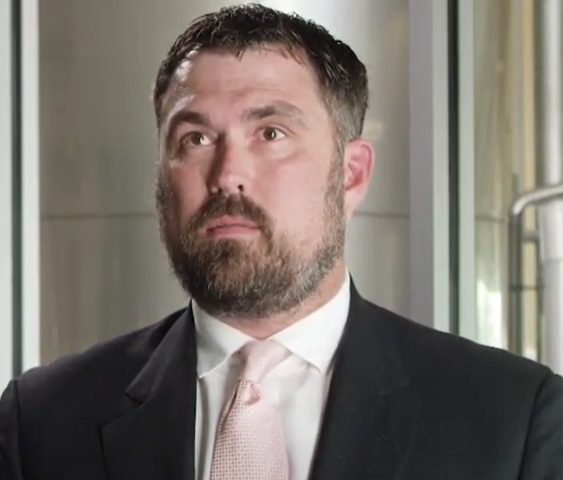[**TRIGGER WARNING**]
Veteran Morgan Luttrell was part of a terrible helicoper crash that left him with a spinal cord injury and a TBI. He says, "The physical injuries are the easy part...it was the neck up [that was problematic]." The people around him helped him realize that he had changed so he set out to find the best treatments possible.
Learn more about some of the treatments available for those recovering from brain injury and PTSD using our Treatment Hub.
Watch more videos from Morgan Luttrell.
It was a training operation. We were off the coast of Virginia, fash open out of a helicopter onto a moving vessel. High winds, high sea states. We were with the best rotary wing unit on the planet and it was just a series of mishaps and miscalculations. And the rotor struck the boat and we crashed, the helicopter blew up. Killed one, injured eight. Broke my back in six places, destroyed everything from the waist down. Damaged my spinal cord. Got mild to medium traumatic brain injury. I was unconscious - I was unconscious for a couple of days, post-concussive for about a month and a half to two months. From what I was told, I kind of have my teammates and my family around saying - hey, do you remember this, that and the other thing? And through my studies, and actually I mentioned this before, through - and trying to go back to revisit - hey, what did I go through so I can relate to somebody who is having those same experiences and telling me about it. Like okay, I know what you’re saying. So it was not something I was in a body cast for a couple of months. The physical injuries were the easy part. This is 2018 - back then, it was 2009. So modern medicine and technology, you can lose a leg, an arm, lung, liver, heart - hey we got you fixed. Neck down, piece of cake. I run faster, jump higher, shoot better - easy day. It was the neck up problems. And when I say problems, it’s in relative terms. It didn’t seem like it was a problematic issue for me. It was what others were noticing. I just kind of - I went with it until it kind of presented itself in a way, like maybe there is - it’s not just me, this is actually a physical and kind of a cognitive problem. So my journey began while I was actually still in the military trying to figure out hey, what’s around here or what’s around the country. What can I do, who knows the answers to the brain? How do I fix this? And unfortunately, even today, 2018, if you ask any scientist, neurologist, I don't care who you’re talking to. You break it down to the lowest common denominator, nobody knows how the brain works. Nobody can figure why a 3 pound gelatinous substance between your ears can contemplate thought, can contemplate the contemplation of thought. Formulate language, speech and understand those things just through a neuro-connected engagement. It’s the most beautiful, amazing thing that we have right there between our eyes and ears and we have no idea how it works. And you know, maybe the good Lord doesn’t want us to figure that out. I don't know, because we’ve been trying. This video was produced by BrainLine thanks to generous support from the Infinite Hero Foundation.
This video was produced by BrainLine thanks to generous support from the Infinite Hero Foundation.
About the author: Morgan Luttrell
Morgan Luttrell is a Navy SEAL veteran. He sustained back injures including major damage to his spinal cord and suffered a traumatic brain injury in a helicopter crash during training. When he got out, he said he traveled the country trying to figure out how to “fix” his brain. He earned a master’s degree in applied cognition and neuroscience and a Ph.D. focusing his studies on helping veterans with PTSD and other traumatic brain injuries.

